
6 Quick Tips to Start Going Zero Waste: A Basic Guide for Busy People
Zero waste can sound impossible, but the truth about zero waste is a little more complicated and a lot more doable. With this guide, we’ll help you head toward zero!
Read More

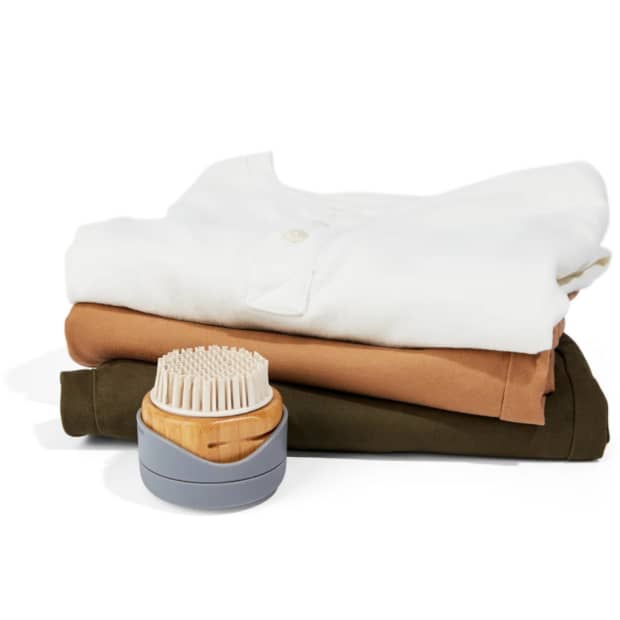
Last Updated: July 22, 2022
Our Two-Sided Eco Lint Brush is compact, reusable, and a sustainable choice for zero-waste lint removal. But how does it perform compared to sticky-tape lint rollers on items covered in lint and fuzz? Read on to find out.
Anyone with pets and a penchant for black attire knows that lint brushes are a must-have. Personally, I keep one on my dresser, one in my bag, and one in the car — because the last thing I need is to arrive for a therapy appointment covered in cat fur, giving my therapist yet another reason to worry about my well-being.
The result is that I look like I’ve got my life together, but at what cost? I know those single-use sheets on my jumbo-size lint roller aren’t good for the environment, and it always takes more than one sheet to fully de-fur myself — not to mention the precious real estate the roller uses up in my bag.
And that’s how I met Grove Co.’s Two-Sided Eco Lint Brush. It’s compact, reusable, and it has two types of lint-removers for top-notch fuzz removal. Wondering how it compares to my beloved sticky-tape lint rollers? Read on as I put the Eco Lint Brush to the test on three of my most fuzz-prone items.
We’re all familiar with lint. Dryer lint, pocket lint, belly button lint — the list goes on. But where does it come from? Lint is an accumulation of dust, skin cells, human hair, animal hair, and, of course, fabric fibers. When we wear and wash clothes, the fabrics rub against each other, which causes the textiles to shed, contributing to the buildup of lint.
Lint is an unavoidable part of life — especially if you have pets — but there are a few things you can do to prevent lint from building up. These tips can also help stop your clothes from fading.
SUSTAINABILITY TIP
Did you know that lint is compostable? It’s true! Lint from natural fibers like wool, cotton, and linen can go into your compost bin to decompose into healthy fertilizer for your garden and houseplants. If you’re curious about compost, check out our beginner’s guide to composting for easy tips on how to get started.
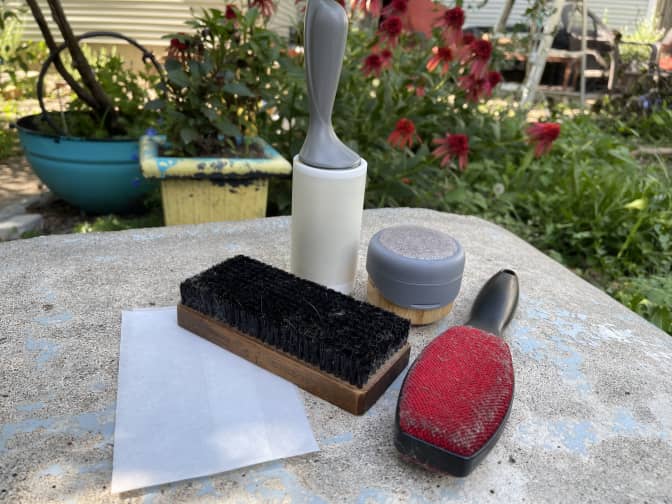
Lint rollers contain rolls of adhesive sheets that pick up lint from your clothes. They work really well, but they’re terrible for the environment. The single-use sheets aren’t recyclable and the plastic handles aren’t typically made from recyclable plastic.
Lint brushes have plastic handles and pads that contain thousands of fibers. These fibers pick up lint, hair, and debris from fabrics and upholstery. Lint brushes are a great alternative to lint rollers because they don’t use tear-off sheets, but many versions don’t have handles that are made from recyclable plastic.
Do these work? Yes. Are they problematic? Also yes. Conventional dryer sheets are made from polyester – a derivative of plastic. That means they aren’t recyclable and when you use them in every load, the wastefulness really adds up. Plus, conventional dryer sheets are often made with artificial fragrances that contain harsh chemicals like phthalates.
Clothes brushes look a lot like boar bristle hair brushes, but for your clothes. You can find old-school clothes brushes at the thrift store or you can buy new. I’m not a huge fan of these because they never seem to work that well — the bristles shed after a while, and they’re rough on my clothes.
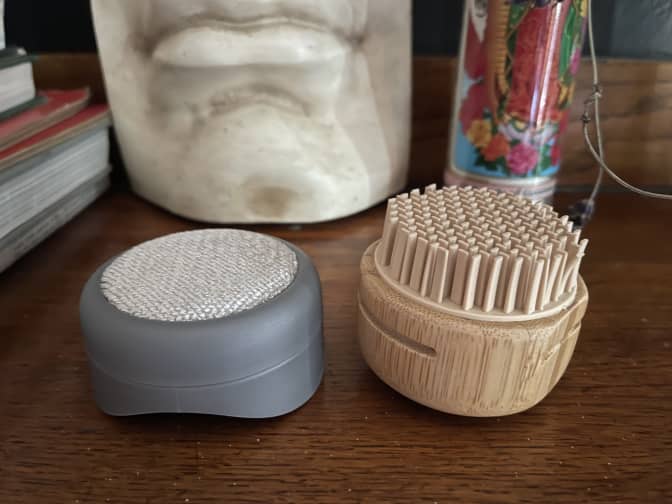
Grove Co.’s Two-Sided Eco Lint brush is a reusable alternative to single-use lint removers like lint rollers. It’s made from recycled plastic and sustainable bamboo — and the best part is that there are no tear-off sheets or refills required.
The fabric side has a handy arrow that shows which direction to brush your clothes in. Simply brush your clothes in the direction of the arrow et voila! Lint-free duds with zero waste. This fabric side is great for fine lint, dust, dandruff, and light pilling, and it’s safe to use on delicate fabrics like silk.
How to clean it: You can wipe the fabric side with a damp cloth to remove fur or, if you’re lazy like me, wipe it on your pants going the wrong way. This removes the lint in a nice clump that you can toss in the trash.
The bristles side is my favorite part of this brush because it works really well for hard-to-remove lint. Just sweep the bristles in one direction over your fabrics, and prepare to be amazed as it removes large lint clumps, stuck-on debris, and hair.
How to clean it: Rinse the rubber bristles under water, then blot them with a towel to dry.
I refuse to give up this coat because it’s so lusciously warm during cold Midwestern winters, but it gets absolutely covered in lint that I can never fully remove with lint rollers or boar bristle brushes.
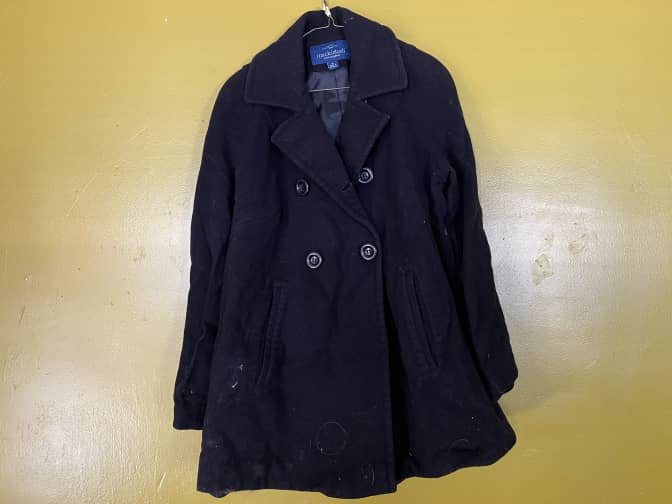
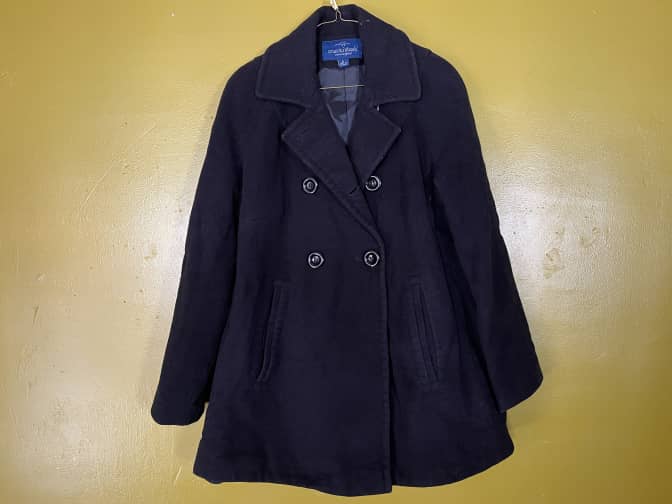
How it worked: I started off using the fabric side with little success. Then I switched to the bristle side and whoa! I can’t believe how well it worked. The coat was a little wrinkly from being in my closet for a few months, so I gave it a few spritzes of Grove Co.'s Wrinkle Releaser Spray — and it’s like a whole new coat.
More wool! To be honest, I’ve actually stopped wearing this scarf because it’s permanently covered in fur. Even my trusty lint roller can’t make a dent in the layers of fuzz!
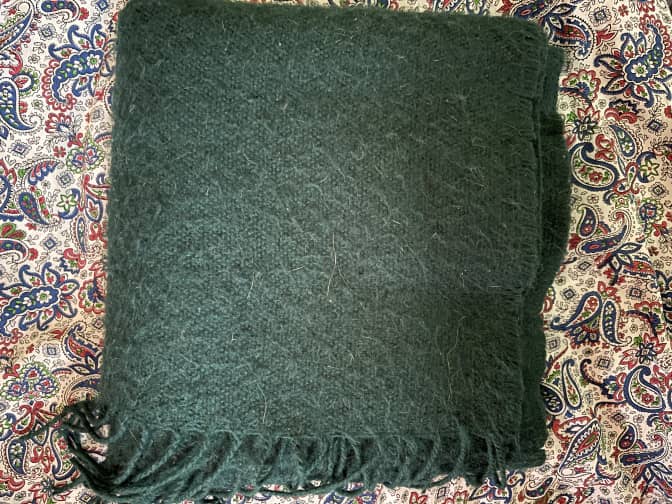
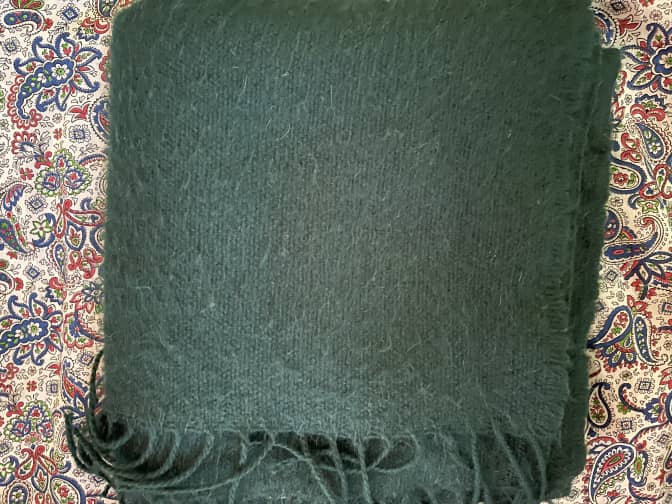
How it worked: How about that? Not only is it pretty dang bereft of fuzz, but the lint brush also fluffed up the scarf and made it look even cozier. A win-win!
This top is made from some type of modal fabric that literally attracts fuzz from the air as I walk through it. As you can see, the top gets absolutely covered.
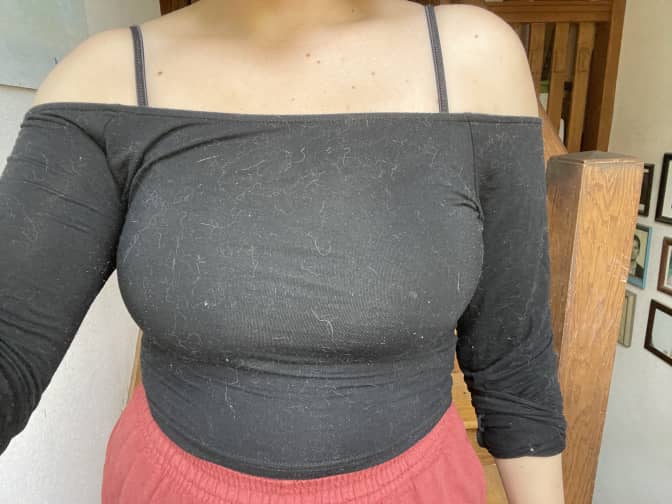
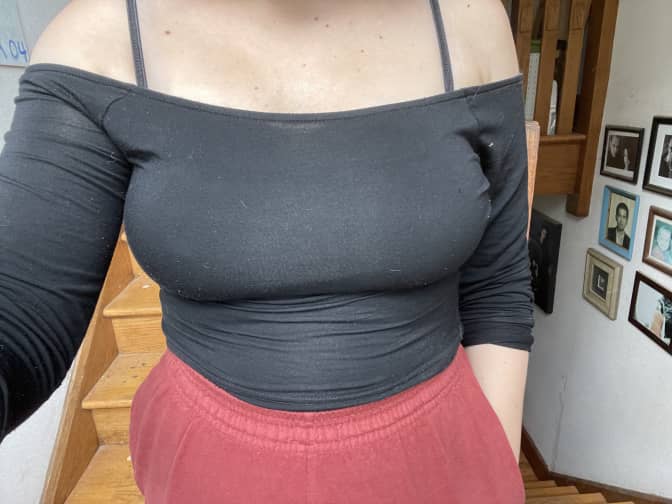
How it worked: She’s clean! Normally it’d take two or three lint roller sheets to get all the fuzz off of this top. With the Eco Lint Brush, I only had to wipe the lint off a couple of times, and it feels really good to know there’s a sustainable way to clean my clothes.
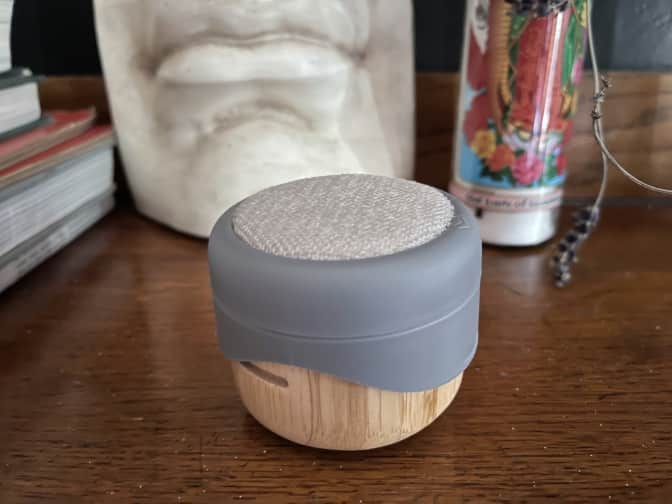
If you, like me, are trying to kick your lint roller habit, I 10/10 recommend giving Grove Co.’s Two-Sided Eco Lint Brush a shot. It takes up a lot less room in my bag, plus I look way more elegant when I use it to gently swipe fur off of myself than I do when I whip out my jumbo roller.
As far as ease of use goes, the Eco Lint Brush is just as quick to use as a lint roller. The lint brush fits nicely in the palm of your hand, and you can get a lot of swipes in before you need to clean the lint off — plus the rubber side is seriously impressive on difficult fabrics like wool.

Zero waste can sound impossible, but the truth about zero waste is a little more complicated and a lot more doable. With this guide, we’ll help you head toward zero!

Learn how to identify and eliminate the source of that mystery stench in your home, and say goodbye to unpleasant smells forever with this guide.